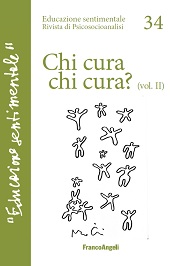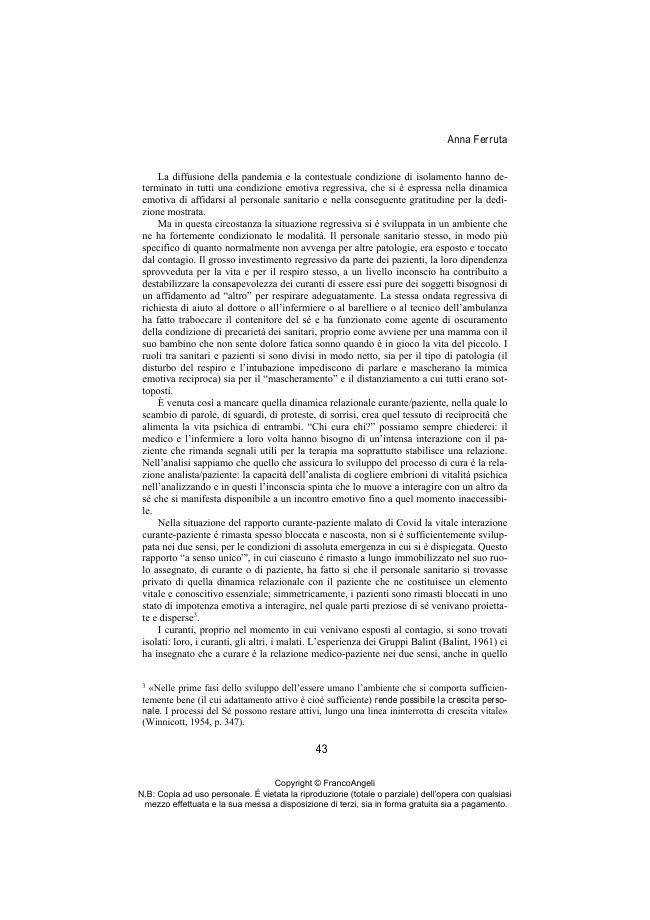Affidarsi/Isolarsi : una figura combinata del rapporto curanti/malati in epoca Covid
P. 39-47
I curanti, proprio nel momento in cui venivano esposti al contagio del Covid, si sono trovati isolati: loro, i curanti, gli altri, i malati. I ruoli tra sanitari e pazienti si sono divisi in modo netto, sia per il tipo di patologia (il disturbo del respiro e l'intubazione impediscono di parla-re e mascherano la mimica emotiva reciproca) sia per il distanziamento a cui tutti erano sot-toposti. È venuta così a scarseggiare quella dinamica relazionale curante/paziente, nella qua-le lo scambio di parole, di sguardi, di proteste, di sorrisi, crea quel tessuto di reciprocità che alimenta la vita psichica di entrambi.
L'esperienza dei Gruppi Balint ci ha insegnato che a curare è la relazione medico-paziente nei due sensi, anche in quello riferito al medico, che nell'ascolto delle emozioni suscitate dall'incontro con il paziente attinge conoscenze e nutri-mento per sé e per l'altro. Prendersi cura è uno dei fondamenti antropologici della condizio-ne umana, riguarda tutti, non solo per riparare a un deficit, ma per la consapevolezza che senza questo alimento relazionale qualsiasi competenza si inaridisce. [Testo dell'editore]
Trusting/Isolating. A blended figure of the caregiver/patient relationship in the age of Covid. Caregivers, the very moment they were exposed to Covid infection, found themselves isolated: them, the caregivers, others, the sick. Healthcare workers' and patients' roles were distinctly divided, due to the type of pathology (breathing disorder and intubation prevent talking and mask reciprocal emotional expression), and distancing that everybody was subjected to. The caregiver/patient relational dynamics, in which the exchange of words, looks, protests, and smiles creates that fabric of reciprocity which nourishes the psychic life of both, thus found itself diluted.
The experience of Balint groups has taught us it is the doctor/patient relationship that treats in both directions, that of the doctor too, who, when listening to emotions that the encounter with the patient arouses, acquires knowledge and nourishment for himself and the other. Taking care of someone is an anthropological cornerstone of the human condition, concerning all of us, and not just a way of repairing a deficit, but of making us aware that without this relational food any kind of ability will wither. [Publisher's text]
Fait partie de
Educazione sentimentale : 34, 2, 2020-
Articles du même numéro (disponibles individuellement)
-
Informations
Code DOI : 10.3280/EDS2020-034004
ISSN: 2037-7649
KEYWORDS
- Trusting, isolating, doctor-patient relationship, regression, taking care



